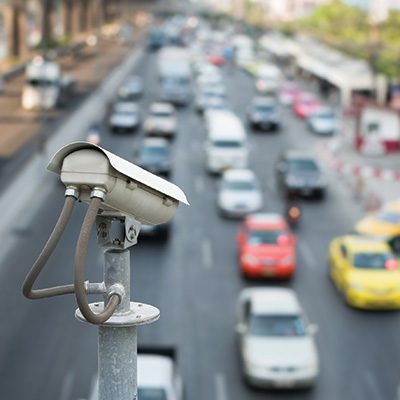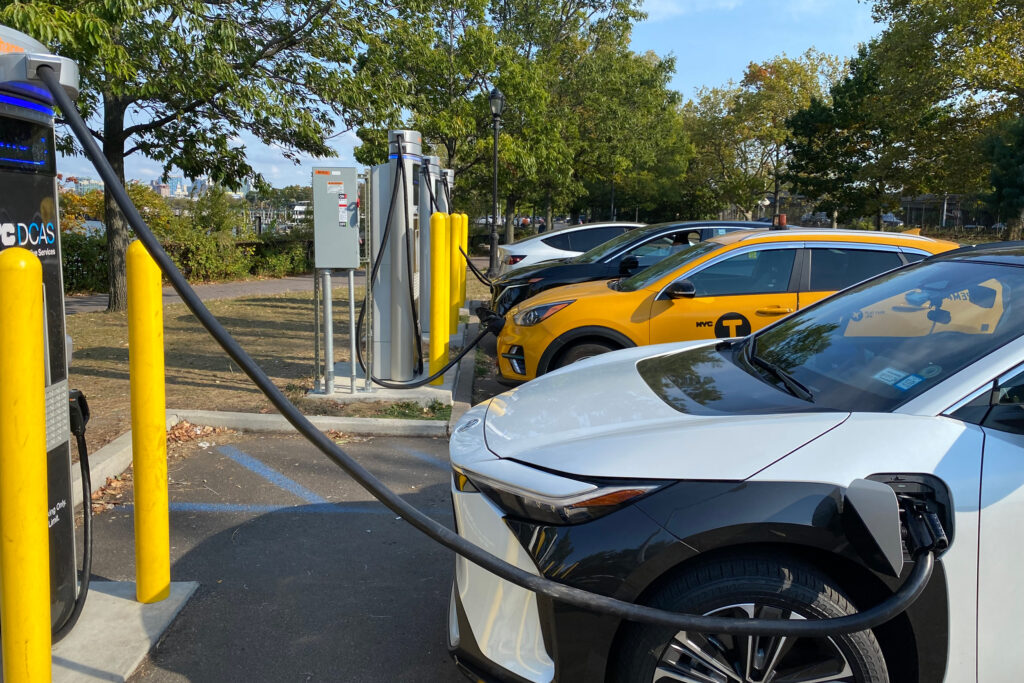The developers of noise cameras insist there’s a case for them, and the public seem to agree. So far, a number of localities worldwide are either trialling the technology or moving to the implementation phase of issuing fines to the public. Why isn’t it taking off in the UK?
Seemingly more than two-thirds of UK motorists back the use of noise cameras to implement penalty fines for noisy vehicles.1 They’ve been trialled in a handful of places, with London’s borough of Kensington and Chelsea being the first to introduce it, in trials in 2020, which progressed to the current ongoing noise enforcement scheme, under which drivers can face fines ranging from £100 to £2,500, with persistent offenders running the risk of having their car seized.2
A handful of other UK locations are trialling noise cameras, as part of the DfT’s £300,000 investment in technology trials, specifically Keighley in Bradford, South Gloucestershire, Great Yarmoth and Rubery in Birmingham.
The DfT published the results of the trials in March 2024, which included an analysis of the technologies believed (in 2022) to be ready to deploy. This work was conducted by engineering consultancy Atkins and Jacob.
In October 2024, Minister for the Future of Roads Lilian Greenwood provided a written reply to a question put by Lib Dem MP Daisy Cooper regarding the deployment of noise cameras by local councils: “Overall, the trials demonstrated that noise cameras currently have the potential to be used for enforcement, but only when accompanied by human review of the recorded evidence, which is likely to lower the cost effectiveness of deploying the technology in many circumstances.
“It is ultimately for local authorities and the police to consider what the most appropriate enforcement routes may be for addressing issues with excessive vehicle noise within their area.”
One of the groups developing this kind of technology, General Noise, commented on a blog last year that the question of cost-effectiveness is bound up with politics – and whether a country is prepared to go hard or soft on the issue.3 To that end, the level of noise deemed tolerable and the size of the fines will be measured out accordingly. And this will ultimately determine its likely practicality in financial terms, not the technology itself.
A political issue?
One of the practical details that seems to vary with different countries’ adoption of the approach is the noise threshold – the level at which the noise camera activates and issues a vehicle with a penalty. In Kensington and Chelsea this has been set at the relatively low level of 75 db(A) – comparable to the sound of a vacuum cleaner. One important point to note is that the council here is targeting deliberate, antisocial behaviours such as engine revving or sudden acceleration, rather than penalizing drivers of inherently louder cars, such as classic cars.
The Atkins and Jacob’s UK study recommended the much higher noise limit of 95 dB, which seems to be much higher also than the 82 dB being trialled in Switzerland, for example. One of the difficulties with interpreting such figures is that the decibel scale is logarithmic, so 95dB is actually perceived by the human ear as around twice as loud as 80 dB, close to the Swiss level. And so this makes the 13 dB or so difference between Switzerland and the UK “highly significant” in the commentary offered by General Noise.
With lower thresholds, more vehicles will be penalised, and the 82 dB threshold in Switzerland has provided a daily capture rate of 100 to 200 Swiss vehicles, in trials in Geneva in 2023,4 compared to 2-3 vehicles per day in the Atkin and Jacobs UK study. As General Noise puts it: “While the two studies may not be entirely comparable in terms of traffic volumes and road types, it’s clear that the Swiss approach is more likely to result in a self-financing revenue model for noise cameras.”
The group also expresses a belief that there is public support for higher fines when these offences occur at night, or near schools or in densely populated areas. Indeed, the article argues for a sliding scale (by dB), just as with speed offences.

While this approach to the discussion seems to have much to recommend it, and General Noise argues convincingly that Switzerland is a country that places a higher value on civic virtue than the UK (and has the quality-of-life rankings to match), there seem to be other pieces to this puzzle. Not least, the legal framework, and there are signs that Switzerland has encountered obstacles in introducing enforceable noise limits, despite the success of the 2023 trials.4
Most of the technology trialled to date has tended to comprise some combination of a microphone (or microphone array), video camera, speed radar and Automatic Number Plate Reader (ANPR). This still seems to produce some proportion of false positives and to have difficulty distinguishing offenders from permissibly noisy vehicles such as the emergency services.
UK developer Intelligent Instruments has provided the technology in Kensington and Chelsea, as well as in trials in New York. Philadelphia has also adopted the company’s SoundVue technology in trials. Legislation in review, authored by the city council’s Mark Squilla, would seemingly see enforcement begin this summer.5
France has been trialling Bruitparif’s Medusa noise radar in recent years in a number of cities, including Paris, Toulouse, and Nice, and a 2023 government decree restricts the noise level to 85dB(A) on roads with a 50km/hr speed limit, in built-up areas. It has been reported that enforcement using noise cameras is expected to begin later this year, whereby vehicles exceeding the 85dB(A) limit may be subject to a fixed penalty of €135.
Notes
[1] Poll conducted by Opinium in January 2025, commissioned by ITS UK, found that 69% of the British public support measures to make it easier to enforce noise limits on road vehicles. https://highways-news.com/new-poll-reveals-69-of-the-british-public-support-measures-to-tackle-noisy-vehicles/?utm_source=chatgpt.com
[2] https://www.rbkc.gov.uk/newsroom/acoustic-camera-pilot-curb-noisy-supercars?utm_source=chatgpt.com
[3] ” How Loud is Too Loud? Ask the Swiss”. General Noise blog, July 2024. https://www.generalnoise.co.uk/post/how-loud-is-too-loud-ask-the-swiss
[4] A pilot project ran in Geneva in 2023. Reported in The Local, October 2024. https://www.thelocal.ch/20241021/switzerland-to-impose-heftier-fines-and-new-rules-for-noisy-vehicles?utm_source=chatgpt.com
[5] https://www.msn.com/en-us/news/technology/the-philadelphia-parking-authority-may-soon-launch-an-ai-powered-system-for-automated-ticketing-of-noisy-automobiles/ar-AA1BPmcs?ocid=BingNewsVerp
















